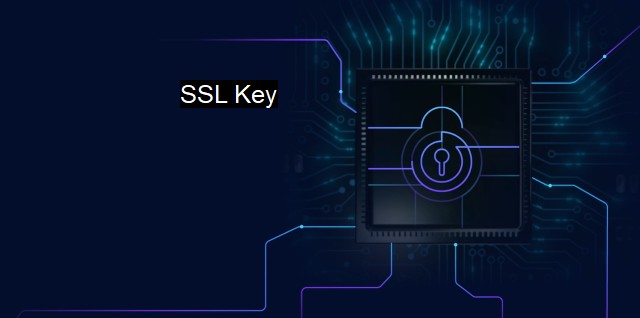What is SSL Key?
The Importance of SSL Keys for Securing Online Communication and Protecting Sensitive Data from Cybercriminals
In the arena of cybersecurity and antivirus protocols, one of the critical features paramount to ensuring safe and secured transmission of information over the internet is an SSL Key. SSL stands for Secure Sockets Layer, providing an encrypted link between a client's browser and a server. This link ensures that all of the data that passes between the server and the browser remains protected and private. The function of an SSL Key in this process cannot be overstressed.SSL uses two keys: a public key and a private key that work together to establish an encrypted connection. These keys consist of long strings of randomly generated numbers. The principal narrative is that these keys are convolutedly constructed in a way that makes it virtually impossible for potential hackers to decrypt the information without the corresponding keys.
The public key is as its name implies; public, made available to everyone who wants to communicate securely with the server. The key encrypts—or locks—the information from the browser before it is sent to the server. When the encrypted information arrives at the specific server location, it will be the only one able to unlock the data with the private key, which kept secret by the hosting web server. After decrypting—unlocking—the information using the private key, the server processes the information and executes necessary procedures on it.
These processes happen multiple times daily, unseen and unknown to us as users but ensuring that any connections or information sharing happening across the internet remain as secure as possible. The safety and integrity of online transactions like financial transactions, data transfers, social security details rest on the SSL encryption protocol, made possible via the SSL keys.
Anti-virus programs are put in place to protect computer systems from malicious threats. A sync between SSL Keys and antivirus preg=true let the application secure information by scanning and filtering data that are transmitted over the internet. SSL certificates support antivirus software by creating a layered security approach, where the activities that settle on the protective outer layer of antivirus can be blocked because they cannot pass the encrypted SSL layer. It makes it difficult for cyber attackers to exploit any vulnerabilities within a system.
For both businesses and individuals, the risks of not employing SSL certificates are substantial. These may include, among others, the loss of customer trust, vulnerability to cyber-attacks, and a decline in web search rankings on platforms like Google. The latter has recently begun to label sites without SSL certification as "unsecured," which would likely diminish the confidence of any potential viewer or customer.
An SSL Key is an essential asset to the security packages of businesses and individuals alike in this modern information age where cybersecurity remains significantly paramount. It is a crucial battlefield in the fight against data loss, privacy breach, cybercrime, and financial threats. As we continue to evolve towards even more digital-centric lives, encryption will only become more important. The use of SSL keys essentially establishes trust across the internet, manifesting an assurance to users concerning their personal information's safety and security. This overall reassurance that comes through the employment of SSL keys creates an environment where online interactions can be made with increased confidence and peace of mind, mitigating the threat of data breach to a large extent.

SSL Key FAQs
What is an SSL key?
An SSL key, also known as a digital certificate, is a cryptographic key used to provide secure communication between a server and browser. It is commonly used to secure web pages, online transactions, and other communication flows to prevent interception by unauthorized parties.Why is an SSL key important for cybersecurity?
An SSL key is important for cybersecurity as it ensures that all communication between the server and the browser is encrypted and secure. This helps to protect sensitive information from being intercepted and accessed by unauthorized parties, such as hackers, who may be looking to steal personal or financial data.What happens if an SSL key is compromised?
If an SSL key is compromised, it can result in sensitive information being intercepted and accessed by unauthorized parties. This can lead to data breaches, identity theft, and other types of cyber attacks. To prevent this, it is important to regularly update and monitor SSL keys, and take immediate action if any suspicious activity is detected.How can antivirus software help with SSL key security?
Antivirus software can help with SSL key security by detecting and preventing malicious software and other cyber threats that may be targeting the SSL key. It can also help to monitor and alert users of any suspicious activity surrounding SSL keys, and recommend best practices for optimizing SSL key security. It is important to regularly update antivirus software to ensure maximum protection against emerging threats.| | A | | | B | | | C | | | D | | | E | | | F | | | G | | | H | | | I | | | J | | | K | | | L | | | M | |
| | N | | | O | | | P | | | Q | | | R | | | S | | | T | | | U | | | V | | | W | | | X | | | Y | | | Z | |
| | 1 | | | 2 | | | 3 | | | 4 | | | 7 | | | 8 | | |||||||